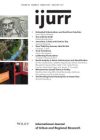Informal institutional arrangements, permeating both formal and informal housing settlements, allow markets to function in developing countries. Yet their economic, social and policy impacts are largely unexamined. Insights from the new institutional economics literature are used to show the significance of informal institutional arrangements in credit, land markets and infrastructure delivery. The analysis is grounded in the experience of Trinidad and Tobago, with empirical information drawn from fieldwork research done in 1993 and 1997. Research findings show that informal institutions of cooperation (e.g. sou‐sou, CBOs) support transactions by reducing transaction costs, by lowering risk and by providing mechanisms to cope with uncertainty. They are therefore used instead of formal institutions. Policy‐makers should expect intense utilization of such locally designed institutions that use social capital in the process of land and housing market reform in developing countries.
Details
Written by:
Ayse Pamuk
Digital Object Identifier (DOI)
10.1111/1468-2427.00253
About DOI
Read full article as PDF
Read full article as HTML
See the references for this article
